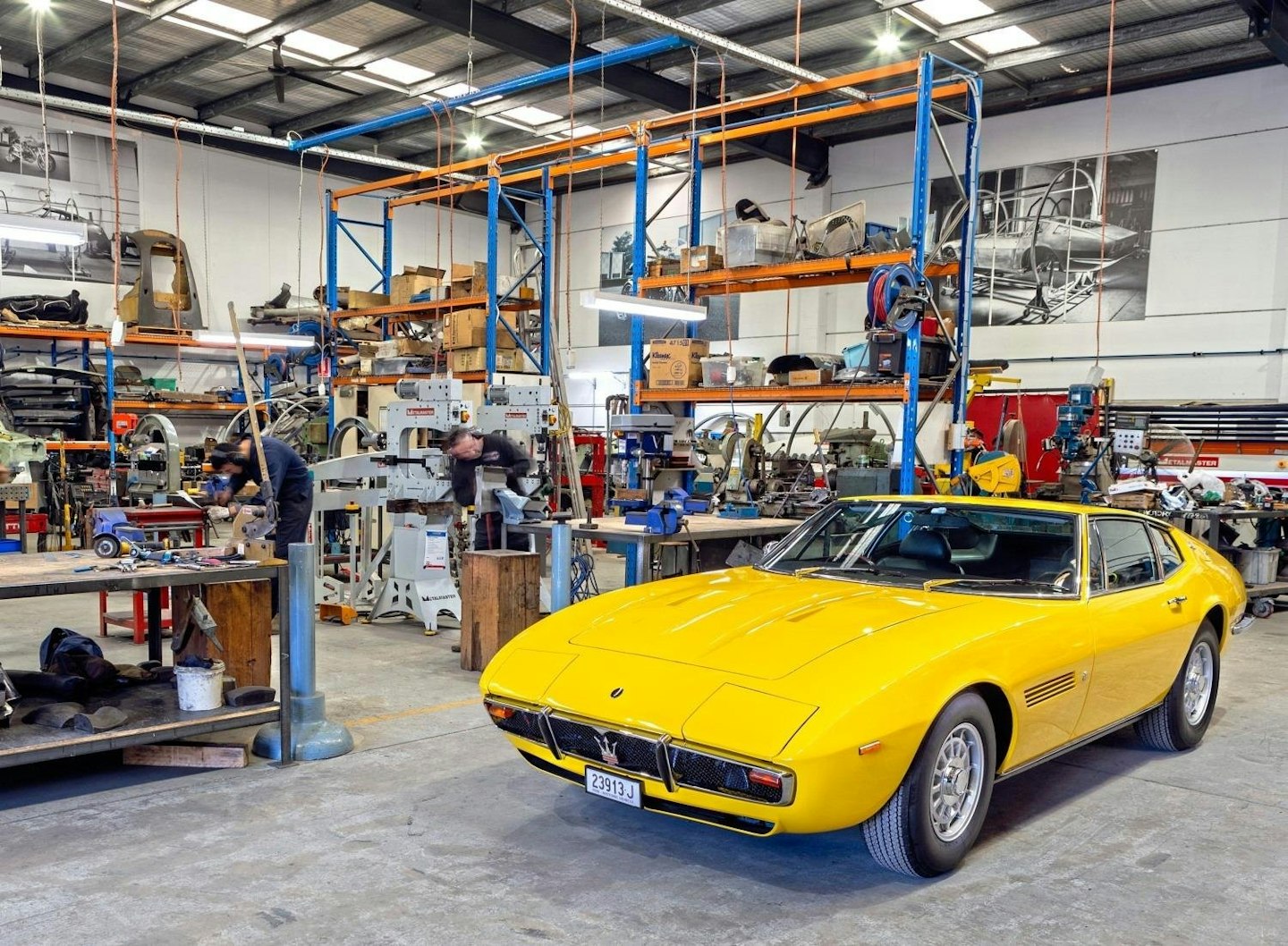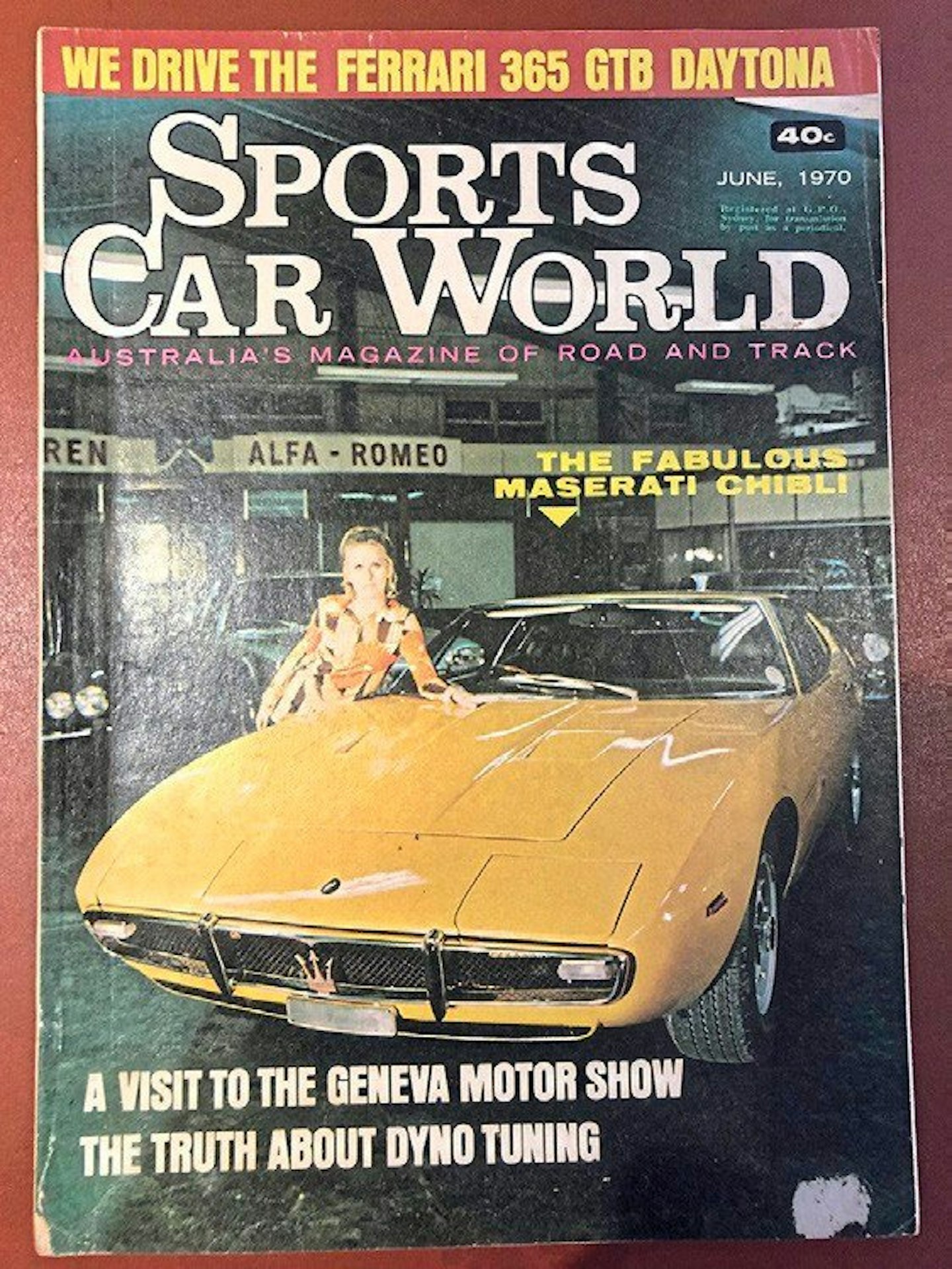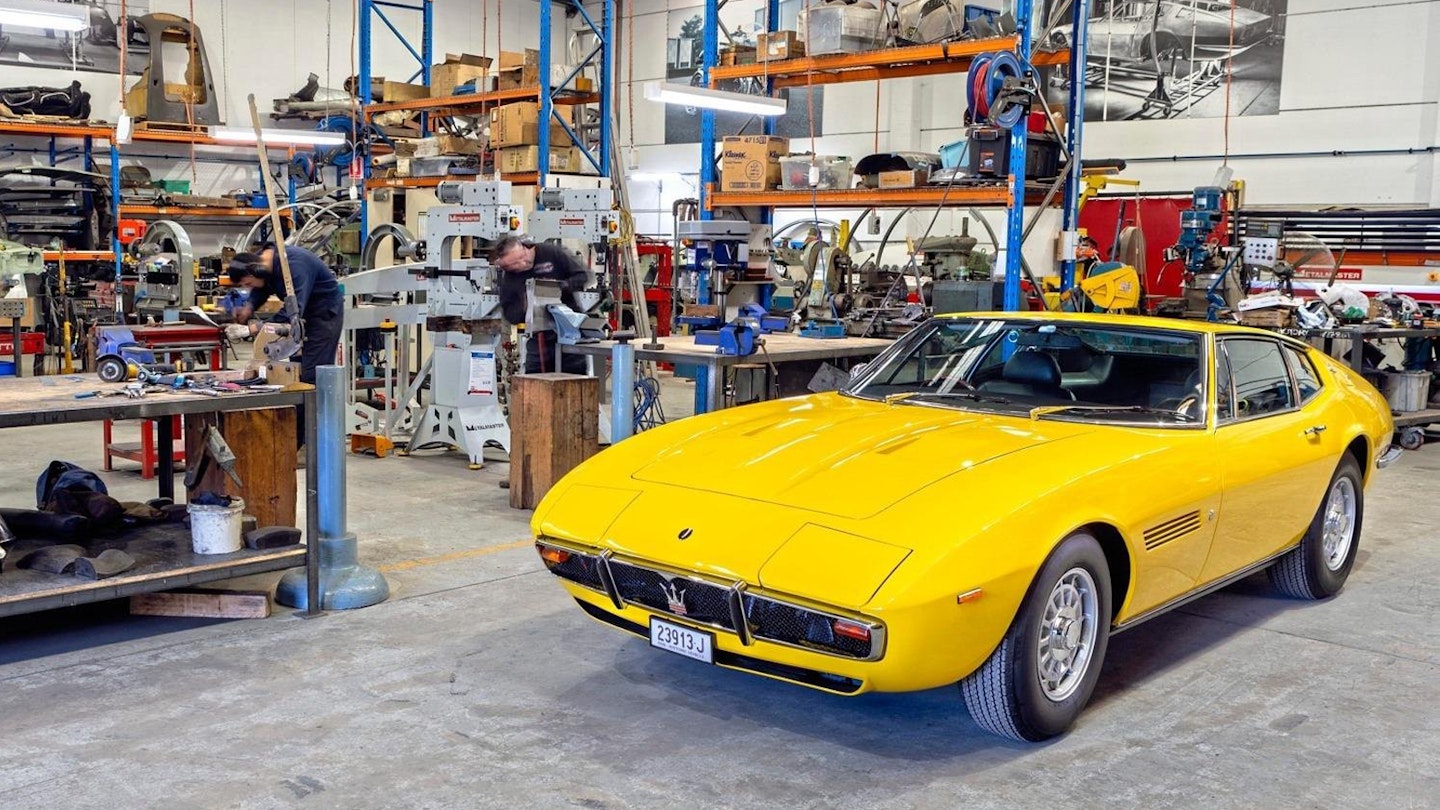[Epic Restoration] Maserati Ghibli
After discovering his newly acquired 1969 Maserati Ghibli harboured a concoction of hidden horrors, Australian Richard Freemantle project-managed a crack team of craftsmen to return it to its original Giallo glory
Words STEWART PERRY Photography ROSS PERRY

An alkaline bath truly revealed the horrors hidden beneath the paint,’ says Sydney, Australia based owner Richard Freemantle of his 1969 Maserati Ghibli. ‘Once the ’shell came out of the tank, we could see quite a few things needing serious attention.’
The prospect of restoring the car had initially seemed enticing. ‘I’d recently finished renovating a Maserati Sebring when I came across two Ghiblis for sale at a deceased estate and thought one could be my next project. One had been restored by the owner and I didn’t fancy it, but this one, other than a pretty bad paint job and being overdue a lot of maintenance, was very original. I jumped at the chance to buy it.
‘In the early stages I researched the history of the car and found it was delivered to Australia new and featured on the June 1970 cover of Sports Car World magazine. This, combined with it being a matching-numbers car, formed impeccable provenance.

‘At that point it appeared we could have wiped it down and kept it running, but under the surface there was rust and the motor was tired. I wanted to make it at least as good as when it was new, with a few subtle improvements along the way.’
Retired businessman Richard is hands-on with his projects, doing some jobs and sourcing parts himself. ‘I’ve done five cars now, and the only way to really see what you’re working with is to strip the car completely. In my experience any rust you can see usually turns out to be three or four times worse than you think. Once this was done I sent the Ghibli’s ’shell to Redi-Strip in Blacktown for the alkaline bath.
‘The car had taken a whack at the rear; the valance was superficially OK, but once it’d been dipped we found the filler was half an inch thick in places. Even though they looked fine at a glance the bonnet and doors had corroded in all the places where the sheet metal is placed over the frame.’
As is common practice in Australia, Richard assembled a team of expert craftsmen to restore the car across a number of workshops, including his own where final assembly took place.
Enjoyed your teaser? Read more from this article when you subscribe to Classic Cars today. Choose a Print + Digital subscription and you'll get instant digital access to this article and so much more.
PLUS FREE UK delivery so you'll never miss an issue again.
